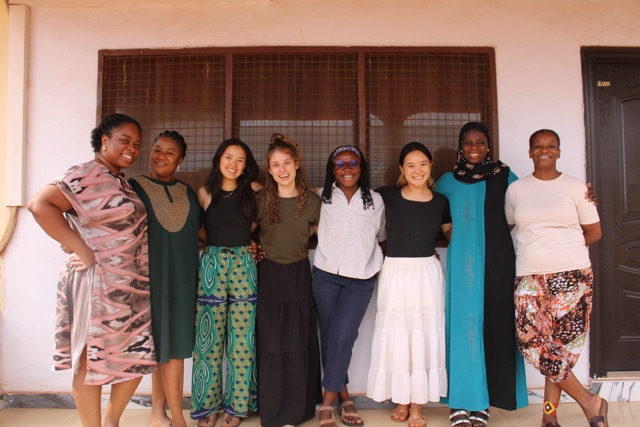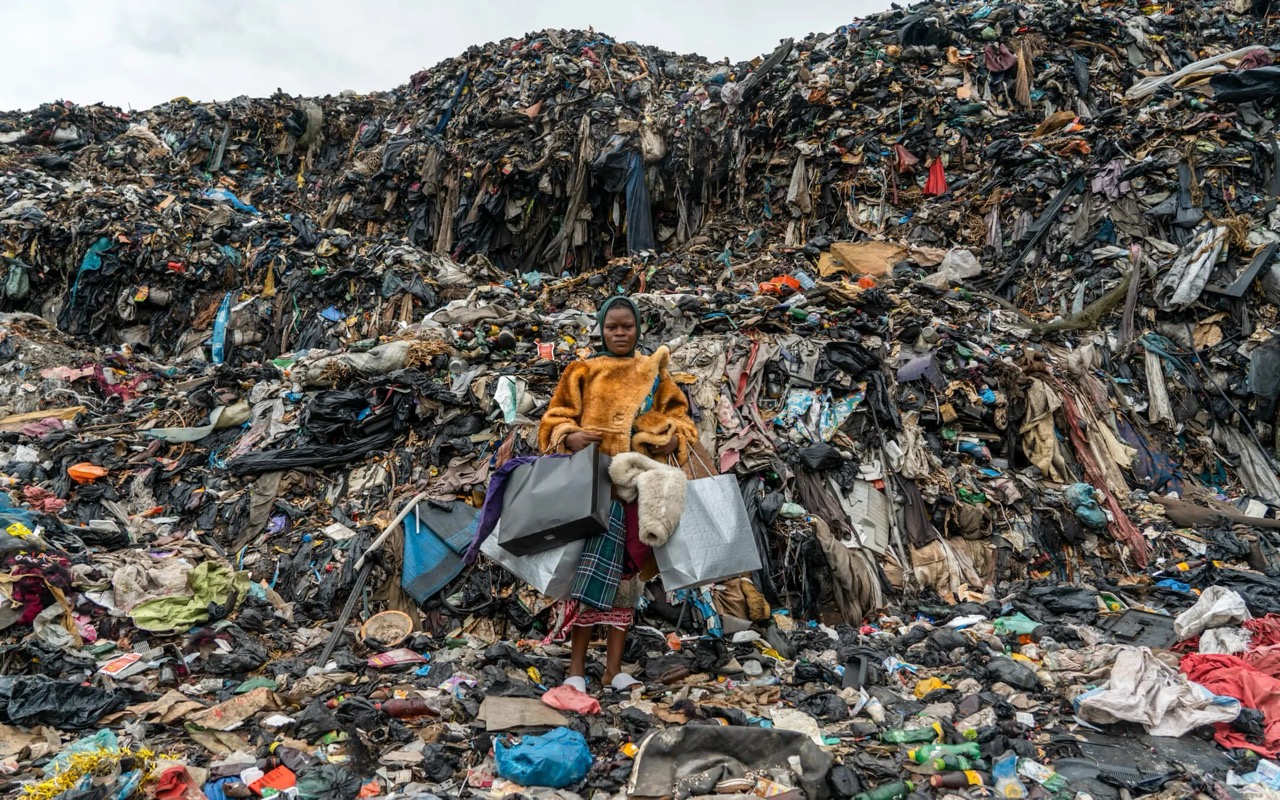Join in on a conversation with YCI Ghana staff as they unpack the recent doc 'Buy Now!' and the impact of waste and fast fashion around the world.
Buy Now, Pay Later: A Conversation on Waste, Climate & Innovation
By YCI Staff | Ghana

Authors: YCI Ghana staff, Sheila Adufutse & Marie Vanderpuye
Setting the Scene:
The YCI Ghana Office – A casual Tuesday afternoon. Marie and Sheila sit at their desks, sipping Ghanaian hibiscus tea (sobolo) as they debrief the Netflix documentary that features Ghana, ‘Buy Now! The Shopping Conspiracy’.

YCI Staff and International Fellows in Ghana, including Marie (far left) and Sheila (center).
The Wake-Up Call
Marie: Sheila, have you ever watched something that made you feel both guilty and inspired at the same time? Let me drop a hint, it is about our global waste crisis…
Sheila: Oh, I know exactly what you mean. Let me guess that new documentary— ‘Buy Now!’?
Marie: Yes! I watched it this weekend, and wow… I still can’t shake it off. The sheer scale of waste, the mindless consumerism, the way everything is designed to be thrown away.
Sheila: It really got me thinking. I mean, we talk about climate change at YCI all the time, but this documentary put a spotlight on something we experience every day here in Ghana: the consumerism waste crisis.
Marie: Exactly. And the part that hit me the hardest? How Ghana is becoming a dumping ground for overconsumption by Western countries. They overconsume, discard, and somehow, it ends up here, in our markets, our landfills, even our oceans. The documentary showed how every single week, over 15 million pieces of used clothing arrive at Kantamanto Market – talk about overwhelming and harmful to the planet.
Sheila: It’s absolutely wild! And you know what’s not helping? How our own local consumption habits are also making it worse. The sheer number of plastic water packages we go through every day, the fast fashion, the plastic, disposable everything. It’s like we’ve built an economy on things that are meant to be thrown away…

Photo of the mountains of waste in the Kantamanto Market in Ghana. Photo Source: The Climate Tribe
Ghana’s Waste Dilemma
Marie: And our waste management systems just can’t keep up. You’ve seen the gutters in our capital, Accra, overflowing with plastic. The burning piles of trash everywhere here in Tamale. The landfills that are spilling over…
Sheila: And let’s not even talk about Agbogbloshie, the world’s biggest e-waste dump, right here in Ghana! Old computers, broken phones, discarded appliances from Europe and North America burned for scraps, poisoning the air and water.
Marie: It makes you wonder what’s the real price of all this consumption? We love to ‘buy now’, but who really pays for it?
Sheila: The environment. The poorest communities. And future generations.
A Different Kind of Economy
Marie: But let me tell you where I find some hope and motivation to keep going. Through HerStart, I’m so grateful we’re able to support young women’s social enterprises that are flipping this entire narrative. They’re not just reducing waste, they’re actually turning it into opportunities.
Sheila: Yes! Like the green entrepreneurs who have received the HerStart Catalyst Fund to scale their businesses. One I met with the other day is repurposing discarded plastic and old clothing into stunning bags and sandals. And another, who creates eco-friendly cleaning products. These women are proving that waste isn’t the end of the line, it’s the opportunity for something new.
Marie: This is what real climate action looks like! Instead of waiting for big corporations or policies to eventually change…well, they should still change but these women are taking matters into their own hands and creating immediate solutions that are both environmentally and economically sustainable. It’s seriously impressive.
Sheila: And that’s what working to support them has been teaching me. We don’t just need to reduce waste; we need to rethink how we use resources entirely. We need to move from a “take-make-waste” mindset to a circular economy, “reduce-reuse-recycle” mentality where everything can have a second (and third and fourth…) life.
Where Do We Go from Here?
Marie: That’s the big question. How do we make sustainability the norm, not the exception? How do we balance economic growth and ensuring everyone has a livelihood, without sacrificing environmental responsibility?
Sheila: For starters, we can all become more mindful consumers. Ask yourself before buying: Do I really need this? Can I reuse or repurpose something instead? Can I use my money to support a business that’s doing things the right way?
Marie: And we need policies that support sustainable businesses. More funding, more visibility, more incentives for green entrepreneurs tackling climate issues. Make the triple bottom line, of people, planet and profit the norm.
Sheila: Yes! And we, as individuals, have power too. Every choice we make where we shop, what we wear, how we dispose of things shape the world we live in. Even what we watch, like the documentary Buy Now, and who we tell about it can have an impact. And of course, supporting women entrepreneurs leading the way to change.
HerStart Green Entrepreneurs in Ghana

Meet Mariam (above), who transforms discarded clothing and plastic packaging into beautiful fashion pieces, and Clementia (below), who produces eco-friendly cleaning products are making households safer and greener. These. They are proof that change is possible when innovation meets sustainability.

How Are You Tackling the Trend of Unsustainable Overconsumption?
💬 Now over to you: What are some ways you practice responsible consumption? Or how could you start? How can we all do better together as a global society? Share your thoughts on our social media channels and follow us for more stories on Instagram and on LinkedIn.